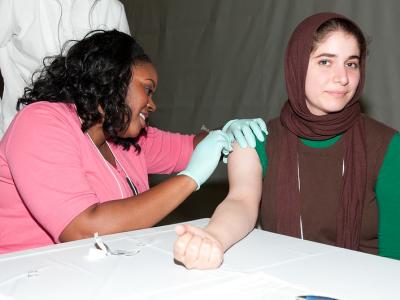WHO: Foodborne disease sickens 582 million, kills 351,000
Nearly 600 million cases of foodborne enteric disease, with 351,000 deaths, occurred worldwide in 2010, 40% of them in young children, a World Health Organization (WHO) research group noted today as it released early findings of a broad analysis of the global burden of the diseases. The full report is planned for release in October.
The WHO's Foodborne Disease Burden Epidemiology Reference Group's (FERG's) figures say that enteric disease cases from ingestion of contaminated food numbered 582 million in 2010. Twenty-two different diseases were responsible, with Salmonella Typhi infections causing the most deaths (52,000), followed by enteropathogenic Escherichia coli (37,000) and norovirus (35,000).
Africa was the site of the highest disease burden, with Southeast Asia second. In the modern world, however, contaminated foods anywhere are of concern across the entire food supply chain, the authors said.
"A local food safety problem can rapidly become an international emergency," said WHO Director-General Margaret Chan, MD, MPH, in a WHO news release. "Investigation of an outbreak of foodborne disease is vastly more complicated when a single plate or package of food contains ingredients from multiple countries."
In addition to the public health consequences of contaminated food, major economic effects can result. For example, a 2011 E coli outbreak in Germany caused $1.3 billion in losses to farmers and industry and $236 million in costs for emergency aid, says the WHO.
Coordinated international actions are needed to reign in foodborne disease, the WHO said. "Food safety is a cross-cutting issue and shared responsibility that requires participation of non-public health sectors . . . and support of major international and regional agencies and organizations active in the fields of food, emergency aid, and education," the agency said in the release.
April 7 is the WHO-sponsored World Health Day for this year. It is being dedicated to food safety and is being identified through the slogan, "From farm to plate, make food safe."
Apr 2 WHO news release
USDA awards universities $19 million for food safety projects
Almost $19 million in grants aimed at ensuring food safety and supply while preserving the competitiveness of US agriculture have been awarded to universities across the country for 36 projects, the US Department of Agriculture (USDA) announced Mar 31 in a news release.
Among the projects are seven that will focus on strategies to mitigate antimicrobial resistance, with these grants totaling more than $6.7 million, including over $2 million each to the University of Florida and the University of Minnesota. Other grant categories address improved processing technologies, identification of food safety needs, and improved food safety and food quality.
The grants were awarded by the USDA's National Institute of Food and Agriculture through the Agriculture and Food Research Initiative, authorized by the 2014 Farm Bill, says the release.
Mar 31 USDA news release
Listing of individual projects









